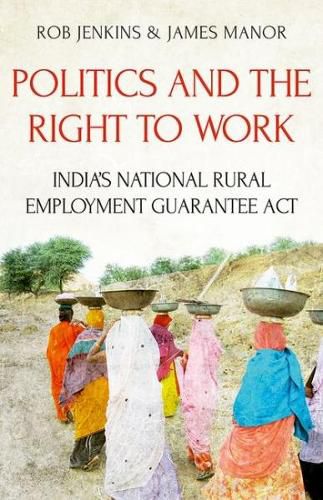Readings Newsletter
Become a Readings Member to make your shopping experience even easier.
Sign in or sign up for free!
You’re not far away from qualifying for FREE standard shipping within Australia
You’ve qualified for FREE standard shipping within Australia
The cart is loading…






India’s National Rural Employment Guarantee Act (NREGA), passed in 2005, has been among the developing world’s most ambitious anti-poverty initiatives. By ‘guaranteeing’ 100 days of work annually to every rural household, NREGA has sought to advance the Indian constitution’s commitment to securing citizens’ ‘right to work’. This book is not a technical evaluation of programme performance. It offers instead a detailed analysis of the politics surrounding NREGA: the model of political action that motivated its architects, the public advocacy and parliamentary maneuvering involved in its passage, the political dynamics shaping implementation at state and local levels, the institutional constraints on reforming how it operates, and its complex impacts on the political capacities of poor people. Based on their extensive - primarily qualitative - field research, the authors examine changing conceptions of rights and the challenges of making states more accountable to their most disadvantaged citizens. Their analysis of the politics of NREGA provides a window onto the inner workings of Indian democracy and the complex character of the Indian state as it attempts to upgrade its social welfare provision to something more in keeping with the country’s growing stature.
$9.00 standard shipping within Australia
FREE standard shipping within Australia for orders over $100.00
Express & International shipping calculated at checkout
India’s National Rural Employment Guarantee Act (NREGA), passed in 2005, has been among the developing world’s most ambitious anti-poverty initiatives. By ‘guaranteeing’ 100 days of work annually to every rural household, NREGA has sought to advance the Indian constitution’s commitment to securing citizens’ ‘right to work’. This book is not a technical evaluation of programme performance. It offers instead a detailed analysis of the politics surrounding NREGA: the model of political action that motivated its architects, the public advocacy and parliamentary maneuvering involved in its passage, the political dynamics shaping implementation at state and local levels, the institutional constraints on reforming how it operates, and its complex impacts on the political capacities of poor people. Based on their extensive - primarily qualitative - field research, the authors examine changing conceptions of rights and the challenges of making states more accountable to their most disadvantaged citizens. Their analysis of the politics of NREGA provides a window onto the inner workings of Indian democracy and the complex character of the Indian state as it attempts to upgrade its social welfare provision to something more in keeping with the country’s growing stature.